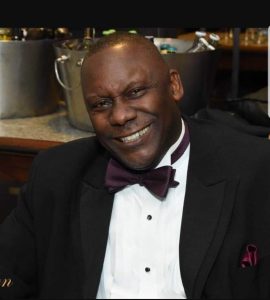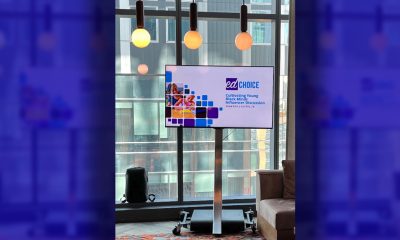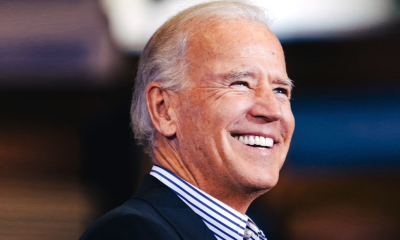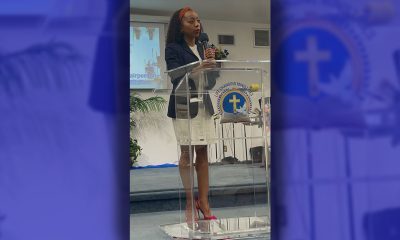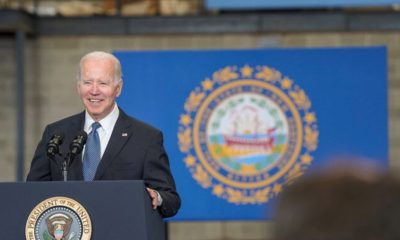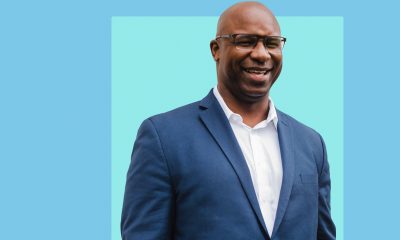Politics
Top City Hall Contenders Play the Plaza Mariachi
THE TENNESSEE TRIBUNE — On Monday three of the four top candidates for Mayor answered questions from Nashville’s refugee and immigrant population at the Plaza Mariachi. The plaza has a food court and performance space in the middle of a strip mall on Nolensville Rd.
NASHVILLE, TN – On Monday three of the four top candidates for Mayor answered questions from Nashville’s refugee and immigrant population at the Plaza Mariachi. The plaza has a food court and performance space in the middle of a strip mall on Nolensville Rd.
There are 13 eateries with different kinds of food, two Spanish language radio stations, a Dominican Barber Shop, a Dubai Jewelry store, a Latin American clothing store, Latin American grocery store, an international calling and money transfer business. There are also regular outlets for H&R Block, GameStop, and Sprint. It’s not like the new Bellevue Mall or Opry Mills but has bits of both.
Some 2019 events at the plaza were Noche de Carnaval, Bollywood Night, Arabian Night, St. Patrick’s Day, Easter Celebration, African Roots, and Chinese New Year. The plaza hosts a bi-lingual story time on weekday mornings for kids.
Last Monday evening Mayor David Briley, Representative John Ray Clemmons, and At Large Councilman John Cooper were the headliners. Carol Swain told the Tribune she wanted to attend but had a prior commitment.
Like the At Large candidates, the mayoral candidates were asked questions about workers’ rights, immigration enforcement, affordable housing, criminal justice, access to services, the economy, and neighborhoods. Each candidate had a short time to answer each question. There was no debating between candidates. Briley spoke about immigration enforcement.
“At this moment in our country our President everyday seeks to divide us. Our state legislature is anti-immigrant, and the last line of defense for folks in our community is city government. And I am running to make sure that your city stands up for folks who have moved here one week, one year, or ten generations ago. That is what is most important to this city,” said Briley.
On the question of workers’ rights and wage theft, John Cooper said people need to report safety issues and that Metro must begin to treat wage theft as a crime. “The first way to address it and the big stick that Metro has is “we’re not doing business with anybody who has that record,” he said.
Cooper also said the city needs to stop measuring police output by the number of traffic stops and instead commit to a community policing plan where the point of contact between law enforcement and the community is a positive one.
“That lack of trust that exists in some places needs to be replaced by reliability, communication, and hard work, and it can happen,” Cooper said.
Alex Macias of Conexion Americas asked, “As mayor, how would you support immigrant-owned businesses to launch, to survive, and to thrive in Nashville’s economy?
“We should be showing our small businesses just as much love as these big corporations we’re trying to recruit to Nashville,” said Rep. John Ray Clemmons. The audience applauded.
“To help launch small businesses we need to make the business process and the permitting processes more friendly. We need to make the government work for the people and help facilitate the overwhelming number of immigrants who start their own business.
We need to facilitate and encourage more 504 loans with the Small Business Administration so more small businesses can get loans to buy real estate and buy their own buildings so they are not beholden to landlords,” Clemmons said. Again, the audience applauded.
He said Metro needs to make serious investments in the infrastructure throughout the city and that the Nolensville corridor is a rich corridor of diversity and culture.
“We need to make sure that people can get to it. We don’t need to be making cuts to our public transportation system. We need to be investing in sidewalks and we need to be making this an opening and welcoming district,” Clemmons said.
Clemmons was the most polished speaker on the stage. Briley acknowledged problems but defended his record and noted his accomplishments as any incumbent would. Cooper answered questions with brief but surprising answers. For example, he challenged the premise behind the question about developing the Nolensville corridor.
“The future comes when we realize that Nolensville Rd is not a corridor, it is a destination,” Cooper said. He said all of Nashville deserves investment, not just downtown.
“We almost completely ignore small business downtown. If you look at the lists of abatements and incentives, this is all very large corporations usually employing people who are not here now. You have to change that. You have to focus on small business. You have to focus on jobs that can come to people who are living here now,” he said.
In the forums the Tribune has covered, Clemmons has been the crowd favorite. Mayor Briley and Councilman Cooper are the other liberal alternatives. However, Cooper is a fiscal conservative like Carol Swain, a Republican.
The candidates have just released their first TV spots and it is too early to talk about the smart money in the Mayor’s race. But as the incumbent and supported by the Chamber of Commerce, Briley has a distinct advantage. His machine in City Hall pumps out new initiatives and photo Ops every other day and the TV stations dutifully cover them.
The one thing nobody is talking about much is the Swain factor. Her last challenge to Briley didn’t force a runoff in May 2018. She got 23% of the votes but Briley won that special election with 54% of the total votes cast. With two smart and able liberal politicians challenging Briley now, the conservative Swain could poll well enough to force a runoff after the election on August 1.
You can see the candidates’ forum held Monday at the Plaza Mariachi here: https://www.facebook.com/tnimmigrant/videos/2567091839990997/
This article originally appeared in The Tennessee Tribune.
Barbara Lee
Congresswoman Barbara Lee Issues Statement on Deaths of Humanitarian Aid Volunteers in Gaza
On April 2, a day after an Israeli airstrike erroneously killed seven employees of World Central Kitchen (WCK), a humanitarian organization delivering aid in the Gaza Strip, a statement was release by Rep. Barbara Lee (D-CA-12). “This is a devastating and avoidable tragedy. My prayers go to the families and loved ones of the selfless members of the World Central Kitchen team whose lives were lost,” said Lee.

By California Black Media
On April 2, a day after an Israeli airstrike erroneously killed seven employees of World Central Kitchen (WCK), a humanitarian organization delivering aid in the Gaza Strip, a statement was release by Rep. Barbara Lee (D-CA-12).
“This is a devastating and avoidable tragedy. My prayers go to the families and loved ones of the selfless members of the World Central Kitchen team whose lives were lost,” said Lee.
The same day, it was confirmed by the organization that the humanitarian aid volunteers were killed in a strike carried out by Israel Defense Forces (IDF). Prior to the incident, members of the team had been travelling in two armored vehicles marked with the WCF logo and they had been coordinating their movements with the IDF. The group had successfully delivered 10 tons of humanitarian food in a deconflicted zone when its convoy was struck.
“This is not only an attack against WCK. This is an attack on humanitarian organizations showing up in the direst situations where food is being used as a weapon of war. This is unforgivable,” said Erin Gore, chief executive officer of World Central Kitchen.
The seven victims included a U.S. citizen as well as others from Australia, Poland, the United Kingdom, Canada, and Palestine.
Lee has been a vocal advocate for a ceasefire in Gaza and has supported actions by President Joe Biden to airdrop humanitarian aid in the area.
“Far too many civilians have lost their lives as a result of Benjamin Netanyahu’s reprehensible military offensive. The U.S. must join with our allies and demand an immediate, permanent ceasefire – it’s long overdue,” Lee said.
Community
Financial Assistance Bill for Descendants of Enslaved Persons to Help Them Purchase, Own, or Maintain a Home
California Legislative Black Caucus (CLBC) vice chair Sen. Steven Bradford (D-Inglewood) introduced new legislation related to reparations to the Senate Committee on Housing on April 2 in Sacramento. Senate Bill (SB) 1007, “establishes the Homeowner’s Assistance for Descendants of Enslaved Persons Program to make financial aid or assistance available to descendants for the purposes of purchasing, owning, or maintaining a home,” the legislation states.
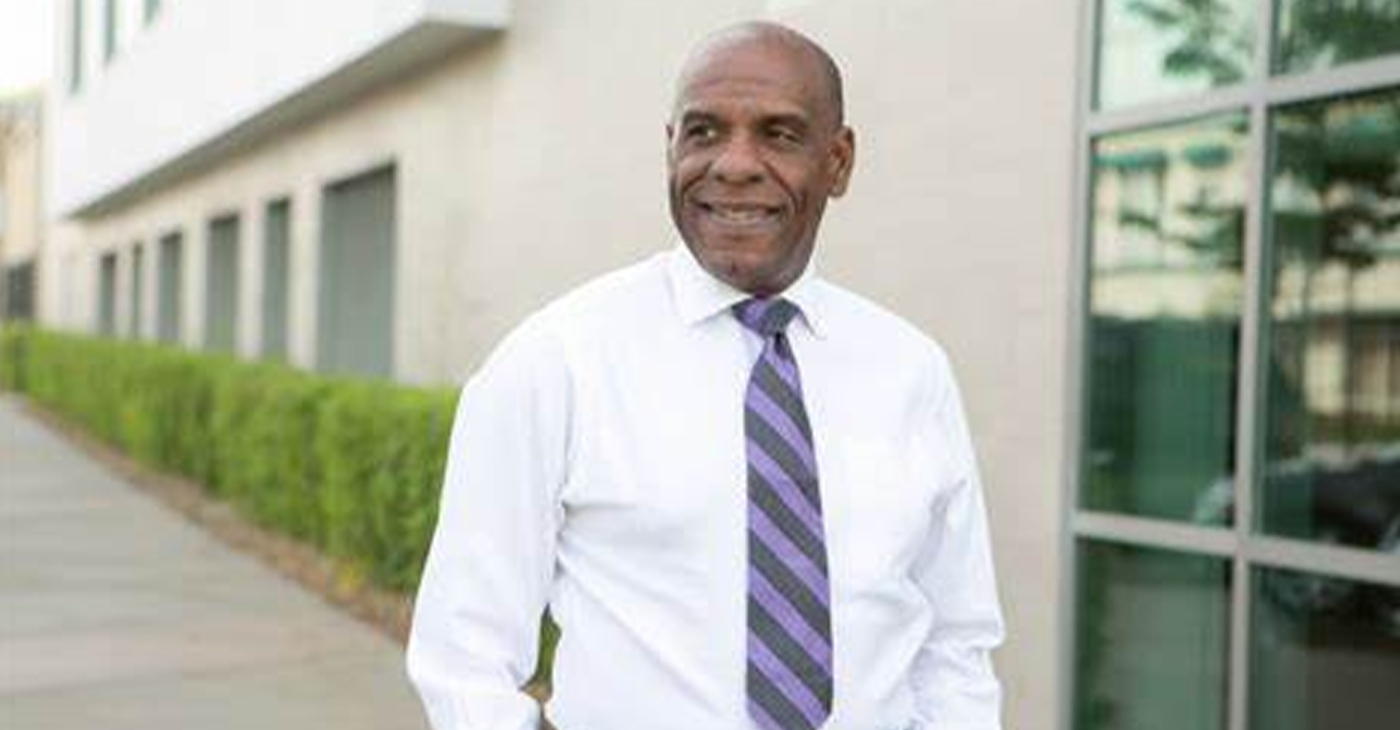
California Legislative Black Caucus (CLBC) vice chair Sen. Steven Bradford (D-Inglewood) introduced new legislation related to reparations to the Senate Committee on Housing on April 2 in Sacramento.
Senate Bill (SB) 1007, “establishes the Homeowner’s Assistance for Descendants of Enslaved Persons Program to make financial aid or assistance available to descendants for the purposes of purchasing, owning, or maintaining a home,” the legislation states.
The Senate Housing Committee advanced the bill with an 8-1 vote. It will be re-referred to the Appropriations Committee for consideration.
Sen. Kelly Seyarto (R-Murrieta) was the only member who voted against the bill.
“SB 1007 is about starting a long process of paying back a debt that is not only owed, but that was also promised, and is 160 years overdue, to African Americans,” Bradford told the committee chaired by Sen. Nancy Skinner (D-Berkeley). “It is the first step in closing the wealth and equity gap created by centuries of slavery and racial discrimination policies.”
The bill aligns with one of the 115 recommendations listed in a two-year study conducted by the California reparations task force, of which Bradford was one of nine members.
Bradford said the report reveals that, in the state of California, a typical Black-owned home is 22% less valuable than a White-owned home.
Various advocacy groups from around the state attended the hearing held at the State Capitol Annex Swing Space. The California Housing Partnership, Bay Area Regional Health and Inequities Initiative, Coalition for A Just and Equitable California, Disability Rights of California, the American Civil Liberties Union of California, and California Community Builders all voiced their support of the bill.
Community
AG Bonta Says Oakland School Leaders Should Comply with State Laws to Avoid ‘Disparate Harm’ When Closing or Merging Schools
California Attorney General Rob Bonta sent a letter this week to the Oakland Unified School District (OUSD) Board of Education saying the district has a duty to comply with state education and civil rights laws to protect students and families from “disparate harm,” such as segregation and discrimination, if the district goes ahead with school closures, mergers or consolidations in 2025-2026.
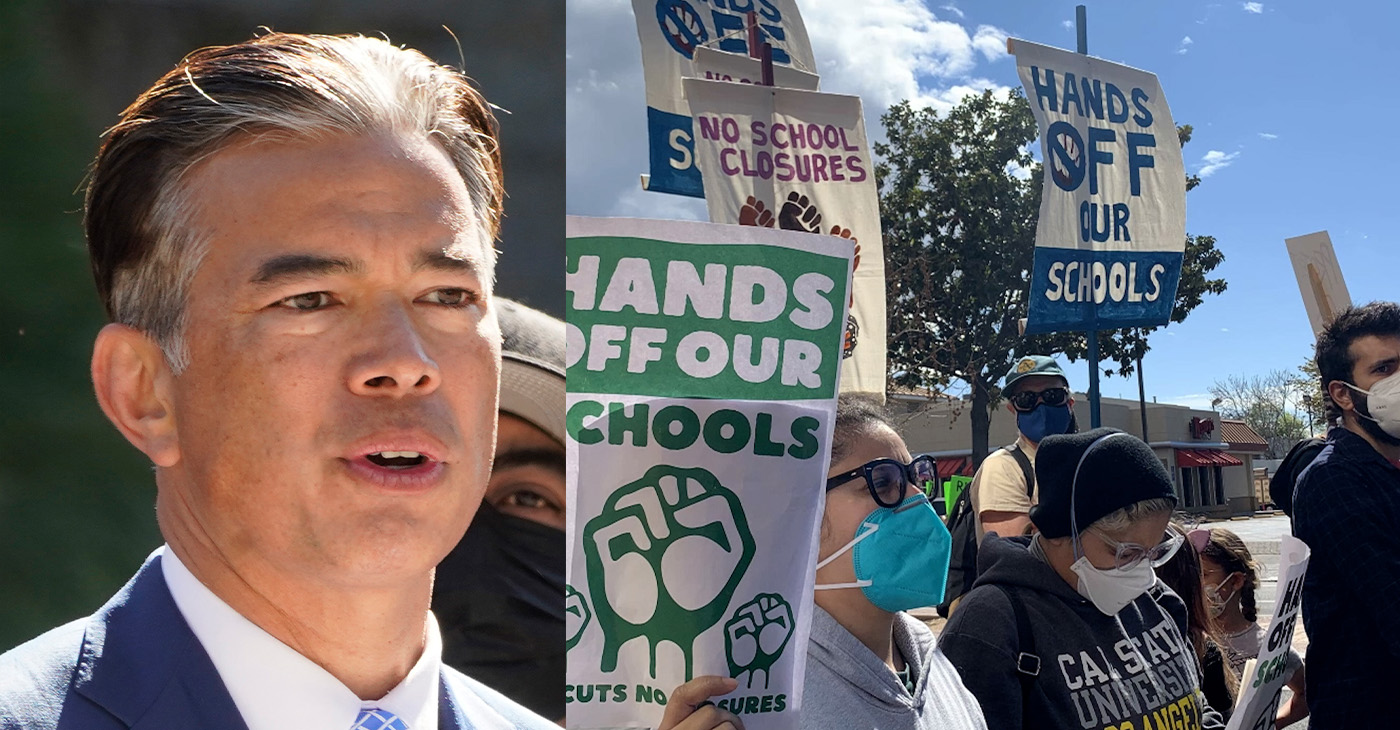
AG Bonta said DOJ investigation of 2022 closure decisions would have negatively impacted Black and low-income families.
By Post Staff
California Attorney General Rob Bonta sent a letter this week to the Oakland Unified School District (OUSD) Board of Education saying the district has a duty to comply with state education and civil rights laws to protect students and families from “disparate harm,” such as segregation and discrimination, if the district goes ahead with school closures, mergers or consolidations in 2025-2026.
The letter and an accompanying media release announced the findings of the California Department of Justice’s (DOJ) investigation into the OUSD Board’s Feb. 8, 2022, decision to close Parker Elementary, Brookfield Elementary, Carl B. Munck Elementary, Fred T. Korematsu Discovery Academy, Grass Valley Elementary, Horace Mann Elementary, and Community Day School and eliminate grades 6-8 of Hillcrest Elementary and La Escuelita Elementary.
“All school districts and their leadership have a legal obligation to protect vulnerable children and their communities from disparate harm when making school closure decisions,” said Attorney General Bonta.
“The bottom line is that discrimination in any form will not be tolerated,” he said. “I am committed to working with OUSD’s leadership to achieve successful outcomes for students.
“My office will continue to monitor OUSD’s processes and decision-making as it moves forward with the required community engagement, equity impact analysis, and planning to implement any future closures, mergers, or consolidations” to ensure compliance with California’s Constitution, AB 1912, and anti-discrimination laws.
By press time, the school district did not respond to a request for comment from OUSD.
The DOJ’s findings showed that the February 2022 decision, later partially rescinded, would have disproportionately impacted Black and low-income elementary students, as well as high-need students with disabilities, according to the media release.
The Attorney General outlined concerns about criteria OUSD has announced that it may rely on to determine future closures, mergers, and consolidations and provided recommendations to ensure OUSD does not violate state law, including prohibitions against closure decisions that reinforce school segregation or disproportionately impact any student group as required by the State Constitution, AB 1912, and anti-discrimination laws.
According to AB 1912, passed in September 2022, financially distressed school districts contemplating school closures, mergers, or consolidations must engage the community before closing schools; conduct an equity impact assessment; and provide the public with the set of criteria the district plans to utilize to make decisions.
In the letter, DOJ identified a “problematic” approach to planning for closing schools in 2025-2026 and “strongly recommends” steps OUSD should take going forward.
- “Take affirmative steps to ensure that its enrollment and attendance boundary and school closure decisions alleviate school segregation and do not create disproportionate transportation burdens for protected subgroups.”
- Don’t solely utilize criteria such as school facilities’ conditions, school operating costs, and school capacity without also including an assessment of past and present inequities in resources “due to educational segregation or other causes.”
- Some of OUSD’s proposed guidelines “may improperly penalize schools serving students with disabilities and students who have high needs.”
- The district’s decisions should also include “environmental factors, student demographics and feeder attendance patterns, transportation needs, and special programs.”
- Avoid overreliance on test scores and other quantitative data without also looking at “how each school is serving the needs of its specific student body, especially as it relates to historically marginalized communities.”
- “Engage an independent expert to facilitate community input and equity impact.”
The letter also emphasized that DOJ is willing to provide “feedback and consultation at any time during the process to ensure that OUSD’s process and outcomes are legally compliant and serve the best interests of the school community and all of its students.”
-

 Activism4 weeks ago
Activism4 weeks agoOakland Post: Week of March 20 – 26, 2024
-

 #NNPA BlackPress3 weeks ago
#NNPA BlackPress3 weeks agoCOMMENTARY: D.C. Crime Bill Fails to Address Root Causes of Violence and Incarceration
-

 #NNPA BlackPress3 weeks ago
#NNPA BlackPress3 weeks agoMayor, City Council President React to May 31 Closing of Birmingham-Southern College
-

 #NNPA BlackPress3 weeks ago
#NNPA BlackPress3 weeks agoFrom Raids to Revelations: The Dark Turn in Sean ‘Diddy’ Combs’ Saga
-

 #NNPA BlackPress3 weeks ago
#NNPA BlackPress3 weeks agoCOMMENTARY: Lady Day and The Lights!
-

 #NNPA BlackPress3 weeks ago
#NNPA BlackPress3 weeks agoBaltimore Key Bridge Catastrophe: A City’s Heartbreak and a Nation’s Alarm
-

 #NNPA BlackPress3 weeks ago
#NNPA BlackPress3 weeks agoBaltimore’s Key Bridge Struck by Ship, Collapses into Water
-

 Activism3 weeks ago
Activism3 weeks agoOakland Post: Week of March 27 – April 2, 2024

